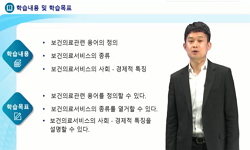The police collect and use personal informations in a wide variety of ways, not only for criminal investigation, but also for the performance of duties of the police officer(Article 2 of Act on the Performance of Duties by Police Officers). Today, the...
http://chineseinput.net/에서 pinyin(병음)방식으로 중국어를 변환할 수 있습니다.
변환된 중국어를 복사하여 사용하시면 됩니다.
- 中文 을 입력하시려면 zhongwen을 입력하시고 space를누르시면됩니다.
- 北京 을 입력하시려면 beijing을 입력하시고 space를 누르시면 됩니다.

경찰의 개인정보 수집·이용에 대한 법치국가적 통제의 필요성 – 수사 목적의 개인정보 처리를 중심으로 – = Regulations on the Collection and Use of Personal Information by Police
한글로보기부가정보
다국어 초록 (Multilingual Abstract)
First, the view that interprets Article 2 of Act on the Performance of Duties by Police Officers and Article 15 (1) of the Personal Information Protection Act as a general provision of authority for the collection of personal information by the police is not justified, because that opinion nullifies the control system based on the ‘rule of law’ principles over the exercise of police power. In addition, Article 199 (2) of the Criminal Procedure Act may not be legitimate legal grounds for an investigative agency to request the provision of personal information from other agencies.
Therefore, fundamental reform is absolutely necessary. The purpose of collecting personal information should be clearly and specifically established, and the scope, requirements, and procedures for collecting personal information necessary to achieve the police purpose should be clearly defined according to the principle of proportionality. In addition, in relation to the collection of personal information without warrant for the purpose of investigation by Article 18 (2) 7 of the Personal Information Protection Act, we must control the risk of abuse through applying the warrant principle. And more stringent requirements and procedures should be established for the collection of sensitive informations.
The police collect and use personal informations in a wide variety of ways, not only for criminal investigation, but also for the performance of duties of the police officer(Article 2 of Act on the Performance of Duties by Police Officers). Today, the right to self-determination of personal information is firmly recognized as a fundamental right in the Constitution, and the collection and use of personal information without the consent of the information subject in the course of performing police duties corresponds to the exercise of police power that limits the right to self-determination of personal information. However, in the current legal system, the specific authority rules governing the processing of personal information, such as the collection and use of personal information by the police, are not clearly established. This paper critically examines the problem that there is virtually no rule-of-law control system over the collection and use of personal information by the police, and so proposes a method to control the police's collection and use of personal informations.
First, the view that interprets Article 2 of Act on the Performance of Duties by Police Officers and Article 15 (1) of the Personal Information Protection Act as a general provision of authority for the collection of personal information by the police is not justified, because that opinion nullifies the control system based on the ‘rule of law’ principles over the exercise of police power. In addition, Article 199 (2) of the Criminal Procedure Act may not be legitimate legal grounds for an investigative agency to request the provision of personal information from other agencies.
Therefore, fundamental reform is absolutely necessary. The purpose of collecting personal information should be clearly and specifically established, and the scope, requirements, and procedures for collecting personal information necessary to achieve the police purpose should be clearly defined according to the principle of proportionality. In addition, in relation to the collection of personal information without warrant for the purpose of investigation by Article 18 (2) 7 of the Personal Information Protection Act, we must control the risk of abuse through applying the warrant principle. And more stringent requirements and procedures should be established for the collection of sensitive informations.
동일학술지(권/호) 다른 논문
-
중국 내 북한이탈주민에 대한 대한민국의 외교적 보호권의 한계 및 여러 인권보호방안
- 서강대학교 법학연구소
- 이희훈
- 2024
- KCI등재
-
- 서강대학교 법학연구소
- 최인화
- 2024
- KCI등재
-
- 서강대학교 법학연구소
- 김일우
- 2024
- KCI등재




 DBpia
DBpia







